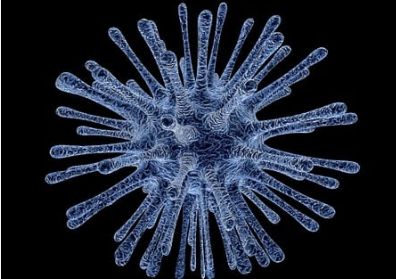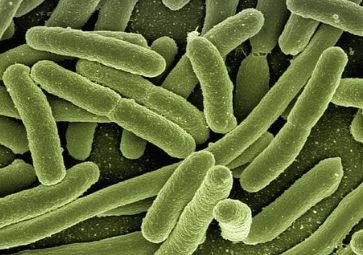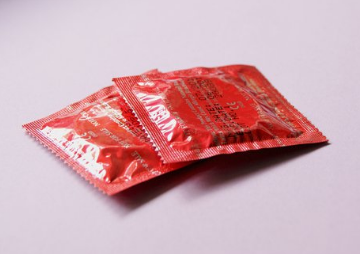Reasons For Burning Or Itching Around the Vagina Or Penis
Burning or itching around the vagina or penis can be a sign of various medical problems, including yeast infections, STIs, and allergies. These symptoms can also be caused by excessive friction, inadequate lubrication, and hormonal changes. Psychological disorders can also cause this condition.

Yeast infections
In some cases, a yeast infection may cause itching or burning around the vagina and penis. It’s often accompanied by a thick, white discharge. It may also cause pain during urination and be accompanied by fever or chills. It can also be accompanied by symptoms such as a rash, pain during sex, and lower abdominal pain. Fortunately, a yeast infection is treatable with over-the-counter medications.
If the itching and burning are continuing after the yeast infection is gone, visit a doctor. Your doctor can prescribe an antibiotic to help cure your infection. However, you must remember to not take another person’s antibiotics if you suspect that you are suffering from a yeast infection. This may make the infection worse and increase the risk of getting another one. Your doctor can also provide you with tips on how to alleviate the burning and itching.
Treatment for a yeast infection depends on the type of infection, symptoms, age, and general health. For vaginal infections, you can take anti-fungal medicines or a cream inserted into the vagina. There are also many over-the-counter treatments available for penis yeast infections. However, you should always discuss the symptoms with your doctor before starting any home treatments or using any creams.
Your doctor will also perform tests on your vagina to confirm if you have a yeast infection. A doctor may also look for yeast in vaginal discharge. The doctor may order a lab test if the symptoms do not go away or if they’re persistent.
A yeast infection is caused by an overgrowth of the fungus Candida albicans in the body. It’s common to have at least one infection in your lifetime. It may not be sexually transmitted but can be spread through oral-genital contact and intercourse.
Despite its unpleasant appearance, yeast infections are usually not a serious health issue if you’re in good health. However, some people may have a weakened immune system or suffer from chronic conditions such as diabetes. Besides the symptomatic effects, there are other factors that can increase the risk of getting a yeast infection. For example, using non-breathable sanitary pads and wearing synthetic clothing may increase your risk.
A woman who experiences symptoms of a yeast infection should visit a doctor to rule out other health conditions. If the infection persists for a long period of time, it may result in complications. In some cases, an infection can even cause paraphimosis, a constricting of the foreskin, which constricts the flow of lymph and blood.
A doctor can prescribe a medication for the infection. These medicines may last anywhere from a few days to a couple of weeks, depending on the severity of symptoms. In mild cases, an over-the-counter medicine may be enough to treat the symptoms. However, if the symptoms recur within a month, it is important to seek medical treatment.
STIs
The symptoms of STIs are similar to those of many other health problems, and it’s best to seek a medical evaluation when you have these symptoms. If you’re experiencing itching and burning around your penis or vagina, a simple visit to the doctor’s office may be in order. But before you visit your doctor, you should consider other possible health conditions first.

Vaginal itching or burning during sex is a common symptom of many different STIs. It can also be caused by stress or other factors. Getting screened for STIs is the best way to determine if you have the infection. Tests are quick, safe, and accurate, so it’s always a good idea to get checked.
Symptoms of Chlamydia psoriasis can vary from person to person. A woman may experience an itchy vagina or burning penis, while men may not. The infection can affect the cervix, the urethra, or the penis, and can also affect the heart and nervous system. Once diagnosed, it’s important to follow the treatment instructions for a successful cure.

STIs can be treated successfully by reducing the risk of getting another infection. However, untreated STIs can lead to other health problems for a woman, including pelvic inflammatory disease, infertility, and ectopic pregnancy. In some cases, STIs can even lead to cancer. If you’re pregnant and experience itching or burning around the vagina, it’s important to seek medical attention as soon as possible.
Other symptoms of STIs include vaginal discharge, itching or burning around the penis, painful urination, and swelling of the anus. You might experience nausea and vomiting, and a fever or chills. Additionally, an open sore may appear on your penis, anus, or the penis. These sores usually heal within a few days.
There are effective treatments available for STIs that cause itching around the vagina or penis. Your doctor can prescribe hormone therapies and estrogen supplements to help you with your symptoms. They will also recommend vaginal inserts and creams to help reduce the itching. STIs are embarrassing and can affect your quality of life.
Trichomonas infections are another type of STIs that cause itching and burning in the vagina or penis. Infection with Trichomonas vaginalis can lead to serious health problems if left untreated. If you experience symptoms, seek medical attention right away and avoid further sexual intercourse.
Most people will experience some type of STIs during sexual intercourse. However, a majority of STIs have no symptoms. It’s important to use condoms for sex and see your doctor regularly for an STI screening. The most common STI is chlamydia, which affects approximately one in six people aged between 14 and 49. Syphilis is rare, but has seen a resurgence in recent years.
Penis irritation can also be caused by other conditions. Latex in condoms and household chemicals can cause irritation in the penis. Your doctor may recommend washing the penis after sexual intercourse and using medicated creams if needed. In addition, diabetes may also lead to penile irritation.
Allergies to condoms
This is not a very common condition, but many people experience burning or itching after sex. In severe cases, the affected individual may require treatment with an antihistamine, a drug that blocks the effects of the body’s histamine. In mild cases, soothing lotions can be applied to the affected area, and 1% hydrocortisone cream can help calm inflammation and reduce dryness. Some severe cases of allergies may require IV fluids or Epinephrine, but only a doctor can decide which treatments are best for you.

People who suffer from allergies to latex condoms may experience a burning or itching around the penis or vagina. The reaction usually goes away after stopping use of the condom. If the burning and itching persist, a sitz bath may help soothe the symptoms.
If the reaction is severe, allergy treatments may include avoidance of latex products. Treatments for milder cases may include antihistamines, corticosteroids, and epinephrine. It is important to see a doctor right away if you suspect you have an allergy.
An allergy to latex condoms is a rare allergy that causes burning or itching around the penis and vagina. In rare cases, it can lead to hives and difficulty breathing. If you experience a reaction to latex condoms, you should seek medical help. The symptoms can be embarrassing and irritating.
There are many alternatives to latex condoms. Polyisoprene or polyurethane condoms are two options for people with latex allergies. Polyisoprene condoms are more affordable and less tightly fitting than latex condoms.
How to Treat Itching or Burning Around the Penis Or Vagina
There are several ways to treat an itch or burning sensation around the penis or vagina. Itching or burning can be caused by a number of conditions, including a yeast infection, a rash, and psoriasis. To get rid of itching or burning around the penis, first find out what’s causing the symptoms.
Yeast infection
If you’re suffering from burning or itching around the penis or vagina, it could be a sign that you have a yeast infection. This condition can last for a week or longer, and can be very uncomfortable. To relieve the pain, you should apply over-the-counter creams, or visit your doctor. For more complicated cases, you can try multi-dose oral formulations of fluconazole.
Symptoms of a yeast infection typically include redness, itching, and swelling in the vagina. You may also experience pain during sexual intercourse or urination, and your penis may be tender and painful. A whitish-gray discharge may be present as well. Symptoms often worsen before or after your period. It can also cause you to urinate more frequently than usual.
Some factors increase your risk of a yeast infection. If you have a weak immune system or are taking medication that can inhibit your immune system, you may have an increased risk of developing a vaginal yeast infection. In addition, your body’s natural defenses will be suppressed by the use of antibiotics or birth control pills, which kill the good bacteria that keep yeast in check.
Symptoms of a yeast infection can be unpleasant and difficult to treat. Yeast is a fungus that lives in the mouth, digestive system, and vagina. Although yeast is normal in the body, it can grow out of control when it is present in large quantities. People with weakened immune systems are at risk of a severe yeast infection. If this occurs, it can cause a variety of other health problems.
Eczema
Itching or burning around the penis or vagina can be a symptom of many different health issues. A dermatologist can provide an accurate diagnosis and treatment. Over-the-counter creams can also soothe the irritation. It’s best to see a doctor if the problem persists for more than a week. If it doesn’t clear up, it may be a sexually transmitted infection.
Inflammation of the penis or vagina can make bacteria and germs thrive. It can also spread to nearby tissue, such as the opening to the urethra. However, these are rare complications and are usually associated with a weak immune system.
Infections can be painful and unpleasant, especially if you have to urinate frequently. In such cases, you must notify your sexual partners to avoid any unnecessary contact until the infection is under control. In addition, it’s important to check your penis for signs of diabetes. This condition can lead to a higher level of sugar in your urine, which is an ideal breeding ground for bacteria and other pathogens.
Regardless of the cause, itching can be a symptom of several different conditions. In females, it can be caused by vaginal infections, while in males, it can be caused by sexually transmitted diseases, skin conditions, and allergies. In the case of the penis, tight clothes, or uncomfortable underwear can further irritate the area.
Psoriasis
Itching or burning around the penis or vagina is a common condition. It is caused by different factors, including friction from sex or dry skin. It is also caused by sexually transmitted diseases. However, there are some simple remedies for this discomfort.
The first step in treating this condition is to find out what is causing it. Yeast infections can cause vaginal itching and burning. It is important not to scratch the area, because this will only make the irritation worse and may cause cuts which will spread germs and lead to a more serious infection. Alternatively, you can try applying a cold compress to the area. Wrap the cold pack in a clean tea towel and put it on the vulva.
Another cause of this irritation is a bacterial infection. You can take anti-fungal drugs to get rid of the infection. Some of these medications can be taken orally. Some of them contain anti-fungal ingredients, which can be applied topically to the affected area. You can also try using petroleum jelly on the area.
Your doctor may also recommend a test to diagnose what is causing your itching or burning around the penis. The most common bacterial infection is syphilis. Syphilis is caused by a bacterium called Treponema pallidum. This infection has four stages. The first stage is an open sore or chancre that appears on the genital area. The second stage is lichen planus, which causes a purplish discharge around the penis and vagina.
Lichen planus
Treatment options for erosive lichen planus include corticosteroids applied as an ointment directly to the affected areas, or injecting steroids into the underlying lesion. Antihistamines are also helpful, as the itching caused by the disease can be alleviated with antihistamines. In some cases, oral corticosteroids are prescribed, but these can have side effects. Treatment may also involve using ultraviolet light or immune modulating drugs.
Treatment for lichen planus begins with identifying the cause. It is unclear what causes the disease in some people, but it is most likely an autoimmune condition caused by an imbalance in the immune system. If you suspect you are suffering from the disorder, see your doctor or dentist for an examination. Your doctor will examine your rash and ask questions about the causes of your condition. They will also collect a biopsy of your skin to perform microscopic examination.
In severe cases, the condition can spread to the lips and other areas of the body. Typically, it manifests itself as small white bumps, although it can be present in the skin of both sexes. The skin condition can cause irritation and even hair loss. If left untreated, lichen planus may result in scarring and disfigurement.
The first step in treating lichen planus around the vagina is to identify the cause. Some studies have found that chronic hepatitis C infection is a possible factor. Steroid medications and applications can suppress the condition temporarily, but long-term use of steroids can make the condition worse and lead to relapse. Phototherapy with ultraviolet light is another option for treating lichen planus.
STIs
Itching or burning around the vagina or penile area can be uncomfortable and aggravate existing conditions. A doctor can prescribe antifungal or antibiotic medication to help relieve the irritation. It can also be the result of a bacterial infection or allergy. It is important to visit a doctor to rule out a more serious condition.
This can also be an early sign of a bacterial infection known as syphilis. If left untreated, syphilis can be life-threatening, so it’s best to seek treatment immediately. Symptoms of syphilis may include a heavy, greenish discharge and painful urination. In men, irritation or burning around the penis may also be an indication of allergic contact dermatitis.
For simple vaginal infections, antifungal creams or suppositories can help. You should also avoid using perfumes and over-washing the vagina or penis. In order to reduce the symptoms of a yeast infection, you can try using a cold compress or ice packs. You can find these in health food stores. To apply them to the inflamed area, simply mix the powder with water and apply it using a finger or applicator.
A doctor may also recommend a prescription for an antifungal cream. It can be combined with a mild cortisone cream and relieve the irritation. Other causes of itching or burning around the vagina or penis include menopause, hemorrhoids, eczema, and several STIs. If you’re not sure, visit your gynecologist to get a proper diagnosis.
Symptoms of genital herpes
Symptoms of genital herpe are painful sores that develop on the vagina and penis. Sometimes, the sores are hidden within the urethra (the tube that carries urine from the bladder). A genital herpes outbreak may be accompanied by fever, sore throat, and deep tiredness. The sores can become inflamed or crusted.
Symptoms of genital herpe may appear days, weeks, or months after you are infected. Symptoms of genital herpe can be subtle and difficult to detect at first, looking more like a rash or insect bite. The first episode is usually mild and will go away within two weeks. Future episodes may be less severe and last longer, but you should still seek medical attention if you develop any of these symptoms.
If you are sexually active, be sure to wear condoms when having sex. This can reduce the chances of contracting genital herpes. However, some condoms are not effective enough to protect you from the virus.
If you are pregnant and you notice the symptoms of genital herpes, you should see your doctor. The chances of transmitting the virus to your baby are very small. However, it is important to monitor your condition throughout your pregnancy and for a few days after delivery. In rare cases, you may need a cesarean delivery to protect your baby. However, most women with genital herpes have no symptoms during childbirth and deliver a healthy baby.










